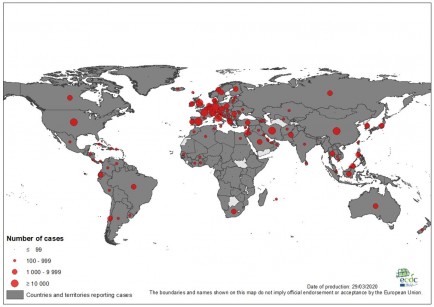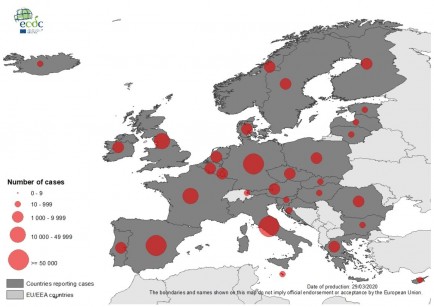A breathalyzer designed to detect multiple cancers early is being tested in the UK. Several illnesses are known to create signature smells from the body, including typhoid fever reported to smell like baked bread and the aroma of acetone, said to be similar to rotten apples, on the breath of diabetics. Recent research has also shown that a person’s breath could also indicate the presence of cancer.
To test this theory, Cancer Research UK have launched a two-year trial into a clinical device, called the Breath Biopsy, to find out if exhaled airborne molecules can be useful for cancer detection.
In the body’s normal metabolic processes, molecules called volatile organic compounds (VOCs) are produced. It’s thought that cancer can create a different pattern of VOCs, which researchers hope to identify using the device. “Our goal is, can we spot these subtle differences?,” Billy Boyle, co-founder and CEO at Owlstone Medical which developed the device, told CNN.
The trial, which is being run by the Cancer Research UK Cambridge Centre, is recruiting up to 1,500 participants, including healthy people to act as a control group.
Patients with stomach and esophageal cancers will initially be asked to try the test, before expanding to patients with prostate, kidney, bladder, liver and pancreatic cancers.
Participants will be asked to breathe into the device for 10 minutes to provide a sample, which will be analyzed by Owlstone Medical’s laboratory in Cambridge.
The idea is to identify if cancer signals are similar or different and how early any signals could be picked up. If some people go on to develop cancer, their samples will be compared to those who don’t develop the disease.
“We urgently need to develop new tools, like this breath test, which could help to detect and diagnose cancer earlier, giving patients the best chance of surviving their disease,” Professor Rebecca Fitzgerald, lead trial investigator at the Cancer Research UK Cambridge Centre, said in a statement.
Almost half of cancers are diagnosed at a late stage in England, according to Cancer Research UK. Some of the reasons are due to patients’ fears of invasive tests, a lack of knowledge of cancer signs and symptoms, and the lack of early detection tests for certain cancers.
Early detection can be a matter of life and death added Boyle, who added that around 85% of people with lung cancer are diagnosed at a late stage, “and they will die in one or two years [because] by the time doctors diagnose it, it is too late.”
There are more than 360,000 new cancer cases in the UK every year, according to Cancer Research UK. Globally, an estimated 18.1 million new cases of cancer were reported in 2018, according to the World Health Organization.
In 2017, researchers told CNN they had developed a device which — using nanorays to analyze breath — can identify Parkinson’s disease, various cancers, kidney failure, multiple sclerosis and Crohn’s disease with 86% accuracy.
But the experimental technology analyzing breath had a number of issues it had to address: including the problem of storing breath that is not immediately analyzed.
Boyle agreed that it is hard to “capture, store, and transport” breath, but added that the Breath Biopsy device has been developed to solve those issues. He said the device captures chemicals using a cartridge, which “acts like a sponge,” and it is then transported to a lab where it is analyzed.
If the trial turns into a success, both Boyle and Cancer Research hope the breath biopsies will be used in doctors’ practices to figure out whether patients should be referred for further diagnostic tests.
“Through this clinical trial we hope to find signatures in breath needed to detect cancers earlier — it’s the crucial next step in developing this technology,” Fitzgerald said in a statement.
Today’s widespread interest in breath analysis stems from the relatively recent discovery — within the past 20 years or so — that nitric oxide, a common pollutant, works as a signaling molecule in the cardiovascular system, Terence Risby, professor emeritus at the Johns Hopkins University Bloomberg School of Public Health, told CNN in 2017. The three scientists who made the discovery won a Nobel Prize for their efforts in 1998.
The theory behind the technology is that each of us has a unique chemical “fingerprint.” Each disease also has a particular chemical signature, which can be detected on our breath.
Original article: https://edition.cnn.com/2019/01/03/health/breath-test-cancer-gbr-scli-intl/index.html




























Comments